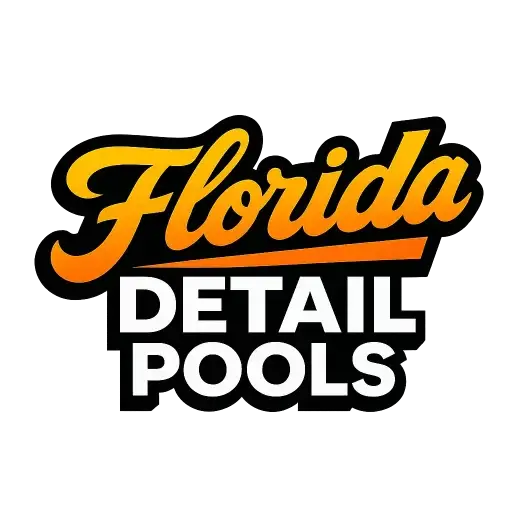
Keeping your pool water balanced in Charlotte County, whether you live in Port Charlotte, Punta Gorda, North Port, or Rotonda, requires more than just chlorine and a test strip. Having the right pool chemistry tools ensures your water stays clean, safe, and sparkling all year — especially through Florida’s unpredictable storms, humidity, and high temperatures.
In this guide, we’ll explore the essential tools for pool chemistry maintenance, how to use them, and why investing in accuracy pays off for long-term pool health.
Why Pool Chemistry Tools Matter
Florida’s heat and rain can quickly throw off water balance. Unchecked pH or chlorine levels can lead to cloudiness, algae blooms, or even equipment corrosion. Proper testing and dosing keep your pool water clear, comfortable, and safe for swimmers.
The Consequences of Poor Chemistry
- Cloudy or green water.
- Scaling on tiles and surfaces.
- Metal staining or equipment damage.
- Eye and skin irritation for swimmers.
- Shortened lifespan of pumps and filters.
Pro Tip: Water chemistry fluctuates more often during summer months and after heavy rainfall — check levels at least twice a week.
Essential Pool Chemistry Tools
1. Digital Pool Testers
Digital testers provide precise readings for pH, chlorine, alkalinity, and sometimes salt and temperature. They’re a major upgrade from color strips, eliminating guesswork.
Advantages:
- High accuracy for saltwater and chlorine pools.
- Fast results (within seconds).
- Easy data tracking for consistent maintenance.
Local Insight: Many Port Charlotte pool owners prefer digital testers to monitor rapid chemical changes after summer storms.
2. Manual Test Kits
Traditional test kits use reagents and color comparison charts. They’re reliable and cost-effective for homeowners who want hands-on testing.
Pros:
- Budget-friendly.
- Works without batteries or electronics.
- Effective for weekly monitoring.
Cons:
- Requires proper technique for accurate results.
- Colors can be hard to read in direct sunlight.
Safety Tip: Always rinse test vials with pool water before and after testing to avoid contamination.
3. Pool Thermometer
Temperature affects chemical reactions and chlorine efficiency. Florida’s summer sun can spike pool temps above 90°F, increasing chlorine demand.
Types:
- Floating analog thermometers.
- Digital wireless thermometers.
- Built-in models for automation systems.
Best Practice: Keep water between 78–82°F for optimal comfort and chemical balance.
4. Chemical Dispensers (Floaters or Inline Feeders)
Consistent chlorine delivery keeps water sanitized. Floaters are simple and affordable, while inline feeders offer precise control for larger pools.
Comparison:
- Floaters: Easy to use but can drift near steps or liners.
- Inline Feeders: Integrated into plumbing, ideal for automation.
Read our guide: Pool Chlorine Floaters vs Inline Feeders for an in-depth comparison.
5. Measuring Cups and Mixing Buckets
Accurate dosing prevents over-chlorination or pH spikes. Always measure chemicals separately and mix outdoors in a ventilated area.
Checklist:
- Chemical-resistant bucket.
- 1-cup and 1-quart measuring tools.
- Protective gloves and eyewear.
Local Tip: Avoid pouring chemicals directly into skimmers — heat and reaction buildup can damage equipment, especially in saltwater systems.
6. pH and ORP Meters for Professionals
For homeowners managing large or saltwater pools, pH and oxidation-reduction potential (ORP) meters provide lab-grade readings. They’re used by pool technicians for precision balancing.
Why They Matter:
- Detect subtle shifts in sanitizer strength.
- Help fine-tune automation systems.
- Extend pool surface and equipment life.
Bonus Tools for Advanced Pool Care
- Salt Meters: Essential for monitoring salinity in saltwater systems.
- Calcium Hardness Test Kits: Prevents scaling and etching on tiles.
- Alkalinity Adjusters: Ensures stability in pH swings.
- Automatic Dosing Systems: Ideal for snowbird homes or vacation rentals.
For professional automation setup or maintenance, contact Florida Detail — trusted across Charlotte County for precision pool care.
Pool Chemistry Tips for Florida Homeowners
- Test water after heavy rain or power outages.
- Keep chemicals in a shaded, dry location.
- Shock weekly during high usage or hot months.
- Record test results to identify trends over time.
- Use fresh reagents — old ones can give false readings.
Remember: Florida’s coastal air and humidity accelerate chemical breakdown, so staying consistent with testing is key.
Trusted Local Resources
- Florida Detail – Your local pool care experts.
- NorthPortPoolCompany.com – Equipment installation and testing support.
- PortCharlottePoolService.com – Pool maintenance and automation upgrades.
- UnlimitedManiac.com – Marketing and local service SEO resources.
Final Thoughts
Owning the right pool chemistry tools helps protect your investment, reduce repair costs, and create a consistently safe swimming environment. Whether you prefer digital meters or classic test kits, accuracy is everything — especially in Florida’s fluctuating weather.
For professional help with testing, balancing, or automation, visit Florida Detail — serving Port Charlotte, Rotonda, Punta Gorda, and all of Charlotte County with expert precision.
